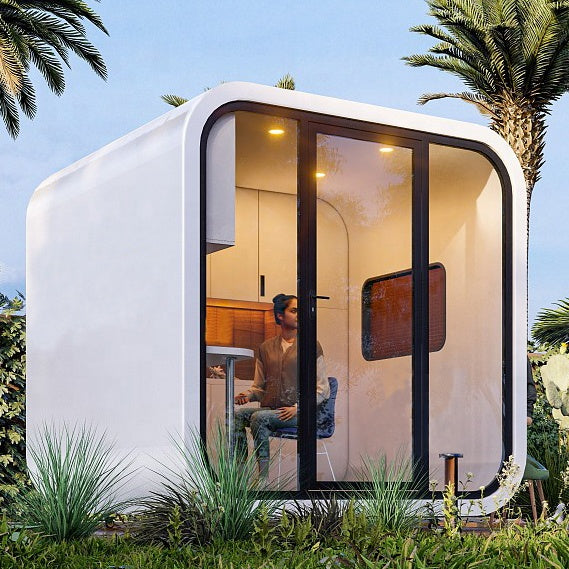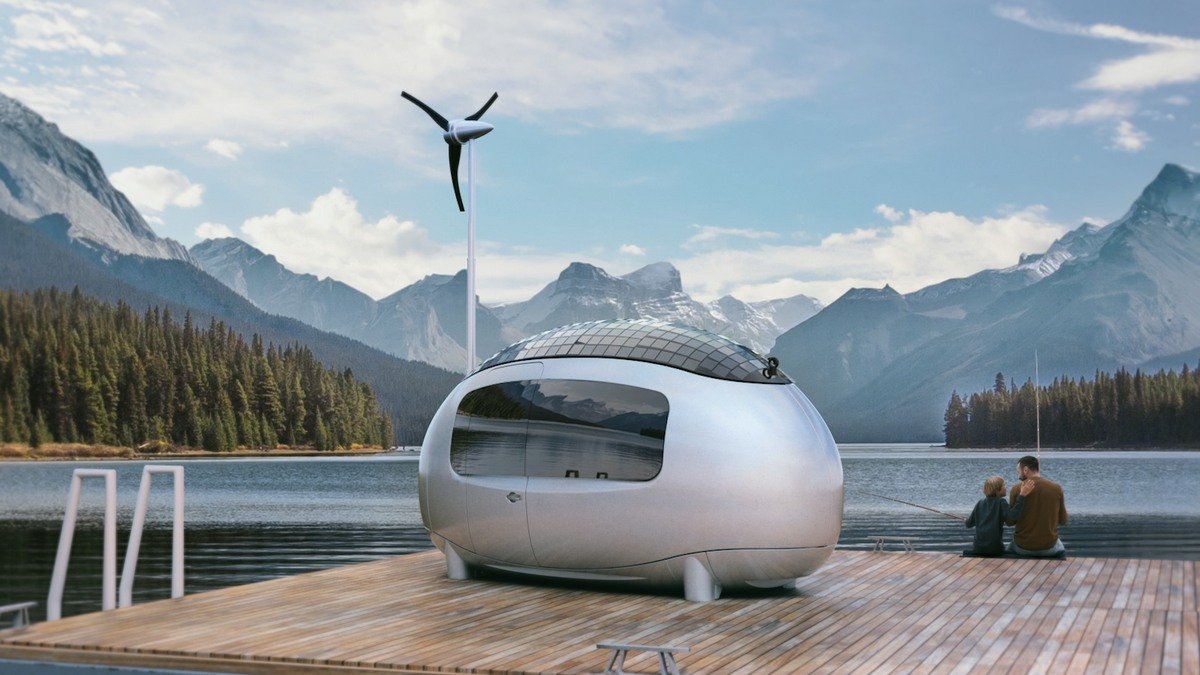Why Modular Houses Are the Future of Sustainable Living
Modular homes are progressively acknowledged as an essential option for sustainable living, supplying a blend of efficiency, cost-effectiveness, and ecological advantages. Their building in controlled settings considerably reduces waste and enhances accuracy, while the potential for including advanced energy-efficient systems places them as a forward-thinking alternative in real estate. Additionally, the flexibility of modular designs allows for the assimilation of sustainable modern technologies and materials customized to specific needs. As we navigate the difficulties of urbanization and environmental sustainability, one need to consider how these homes could redefine our method to living spaces.
Ecological Benefits of Modular Homes
The ecological benefits of modular homes stand for a significant step toward lasting living. These homes are created in controlled factory setups, which significantly decreases waste produced during the building procedure. By optimizing materials and reducing excess, modular building and construction adds to an extra reliable usage of sources compared to conventional structure approaches.
Furthermore, modular homes are commonly made with energy effectiveness in mind. Lots of include advanced insulation methods, energy-efficient windows, and lasting materials, adding to lower energy usage. This can cause decreased greenhouse gas exhausts over the life-span of the home, enhancing its general ecological profile.
The ability to transportation and assemble modular components on-site additionally minimizes the carbon impact related to building and construction logistics. Furthermore, lots of modular homes are developed to be adaptable and conveniently upgradeable, enabling property owners to implement sustainable innovations, such as solar panels and energy-efficient heating unit, gradually.
Inevitably, the environmental benefits of modular homes not only advertise sustainable living however likewise urge a more accountable method to housing advancement, aligning with worldwide efforts to fight climate adjustment and protect natural deposits for future generations.
Cost-Effectiveness and Price
Building a home commonly represents among the largest monetary investments people make in their life time, and modular homes offer an engaging solution for those seeking cost-effectiveness and affordability. One of the key advantages of modular homes is their lower building and construction prices contrasted to conventional site-built homes. The structured production process permits significant savings on labor and materials, which equates to decrease costs for customers.
Furthermore, modular homes generally have much shorter building timelines. This not only minimizes expenditures connected to funding and insurance policy yet additionally alleviates the risks connected with inflation and varying market conditions. Lots of buyers find that modular homes can be customized to fit their budgets without compromising top quality or layout.
In addition, power performance is usually built into the design of modular homes, causing minimized utility costs with time. Lots of makers prioritize sustainable products and methods, even more enhancing the long-term monetary feasibility of these homes. In general, the combination of first cost savings, rapid construction, and recurring energy efficiency makes modular homes an attractive option for those wanting to buy sustainable living without damaging the bank.
Performance in Building And Construction
Modular homes not only supply monetary advantages yet likewise master building and construction effectiveness. The modular structure process includes the simultaneous building of components in a manufacturing facility setup while website preparation happens concurrently. This identical approach significantly decreases the overall timeline from fertilization to conclusion, commonly cutting building and construction time by approximately half contrasted to standard approaches.
Moreover, factory-controlled settings improve quality control. By using accuracy manufacturing strategies, modular homes are constructed to exact specs, minimizing waste and errors. This consistency not only brings about a higher high quality product yet also contributes to lasting methods by lowering material waste during construction.
Furthermore, using modern innovation and automation in the manufacturing procedure allows for quicker assembly and minimized labor prices. As soon as the components are transported to the site, they can be effectively put together, further quickening the timeline. This streamlined process is not only advantageous for contractors however likewise decreases interruptions to the surrounding atmosphere throughout construction.
Customization and Style Flexibility
An impressive array of customization choices differentiates modular homes, permitting house owners to customize their living rooms to fulfill details needs and preferences. This style versatility is a trademark of modular building, enabling clients to choose whatever from floor strategies and room layouts to components and coatings. Unlike typical homes, check it out modular layouts assist in a collective method where building contractors and designers work very closely with homeowners, ensuring that each facet lines up with private lifestyles and aesthetic desires.
Additionally, modular homes can be conveniently reconfigured or broadened, suiting transforming family members dynamics or evolving personal tastes. This flexibility not only enhances the home's capability yet likewise contributes to long-lasting sustainability, as home owners can customize their spaces as opposed to seek new housing remedies.

Future Trends in Sustainable Housing
Emerging trends in lasting housing are improving the landscape of household building, emphasizing innovative innovations and green techniques. One substantial trend is the assimilation of smart home modern technology, which boosts power efficiency with automated systems that optimize and keep an eye on power intake. This not only minimizes energy costs however likewise adds to a reduced carbon impact.
Furthermore, making use of sustainable products is ending up being significantly common. Contractors are opting for recycled, in your area sourced, or rapidly sustainable materials, which decrease environmental impact and support regional economies. Modular homes are getting popularity for their lowered waste throughout building and their flexibility to numerous surfaces and climates.
One more fad is the consolidation of eco-friendly roof coverings and living wall surfaces, which enhance air top quality and give all-natural insulation. These features likewise promote biodiversity in city locations.
Final Thought
In final thought, modular homes emerge as a critical service for lasting living, providing considerable ecological benefits via reduced waste and energy efficiency. As trends in lasting real estate develop, modular homes are positioned to play a vital role in advertising green living techniques for future generations.
Building a home typically represents one of the biggest economic investments people make in their life time, and modular homes supply a compelling solution for those seeking cost-effectiveness and affordability. One of the main advantages of modular homes is their reduced construction expenses compared to traditional site-built homes. On the whole, the combination of preliminary cost savings, fast construction, and continuous energy performance makes modular homes an appealing alternative for those looking to spend in sustainable living without damaging the financial institution.
Inevitably, anonymous the modification and layout flexibility supplied by modular homes guarantee that they are not just frameworks, yet customized refuges that reflect the distinct identities of their owners while advertising sustainable living techniques.

 Michael Fishman Then & Now!
Michael Fishman Then & Now! Hailie Jade Scott Mathers Then & Now!
Hailie Jade Scott Mathers Then & Now! Loni Anderson Then & Now!
Loni Anderson Then & Now! Pierce Brosnan Then & Now!
Pierce Brosnan Then & Now! The Olsen Twins Then & Now!
The Olsen Twins Then & Now!